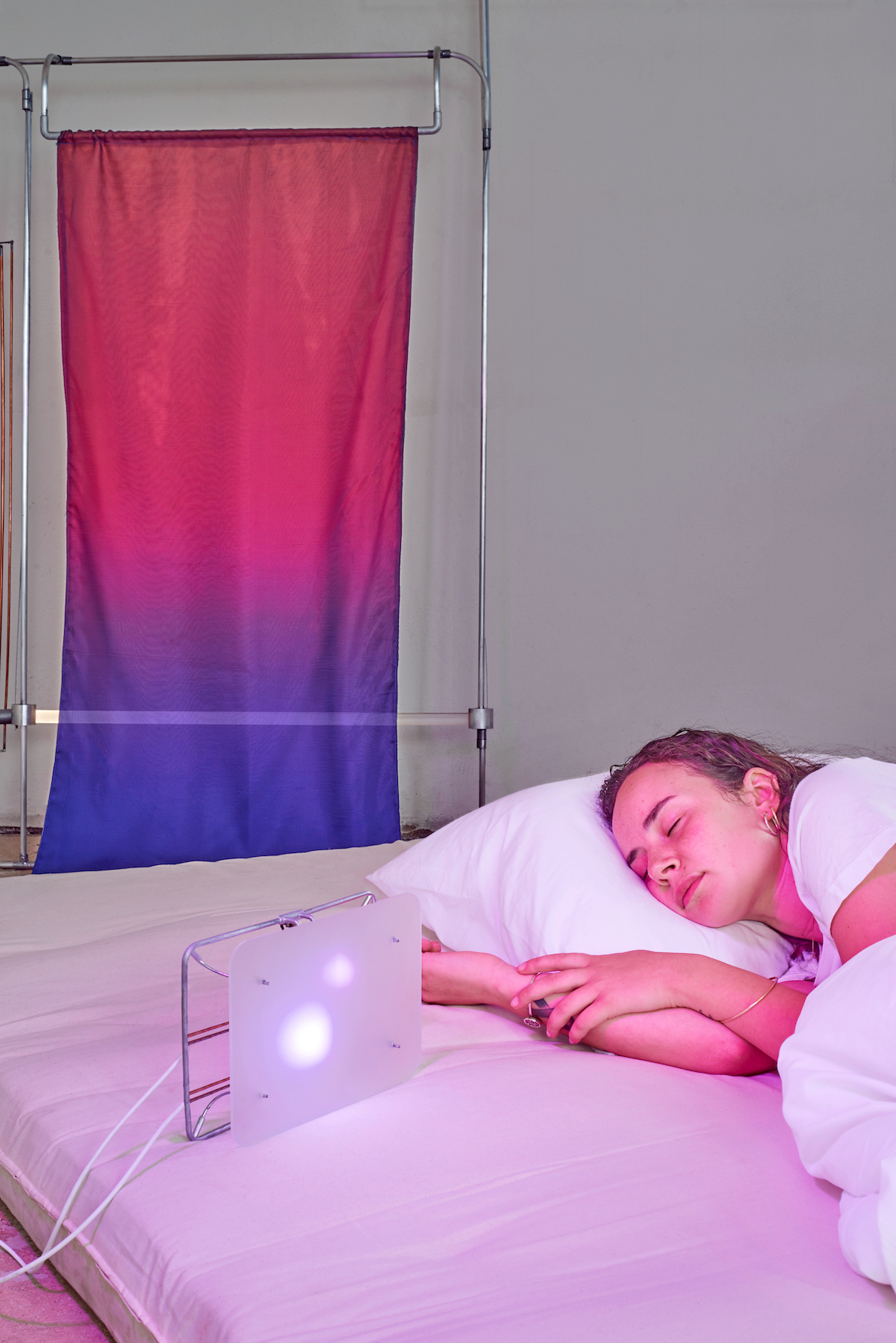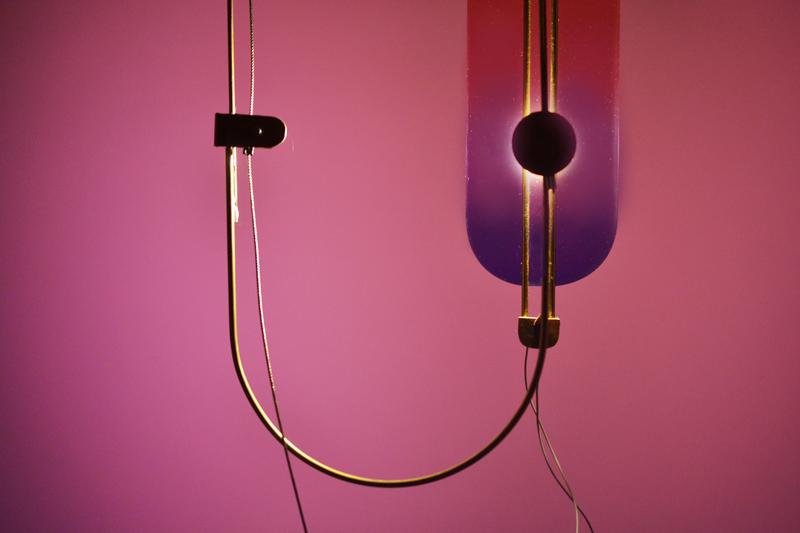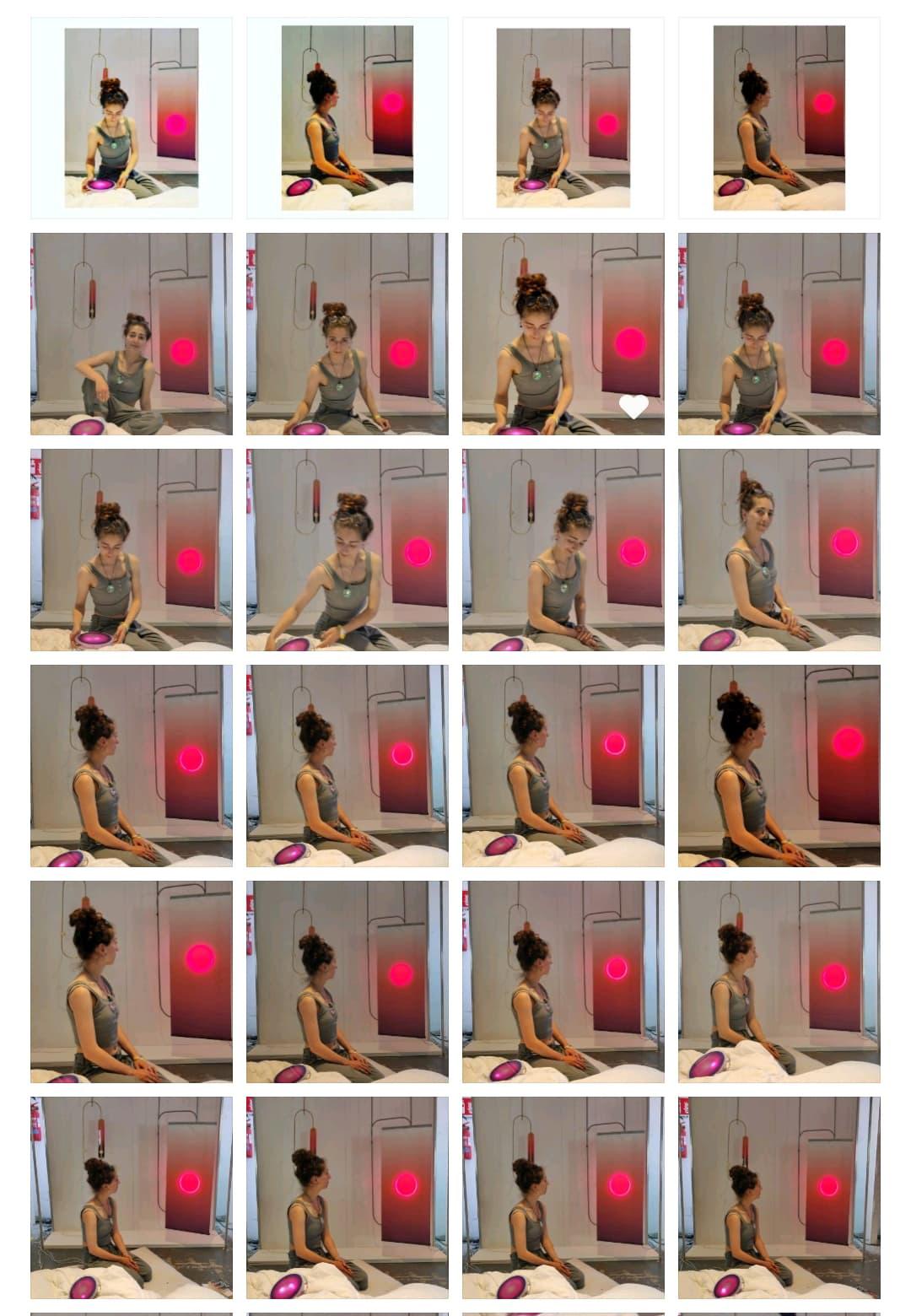This story is part of Next Generation, a series in which we give young makers a platform to showcase their work. Your work here? Get in touch and plot your coordinates as we navigate our future together.
Valentine Maurice is a social-light designer from Paris. She received a BA Science and Technics of Applied Arts at Maximilien Vox in Paris and later a master's degree in Social Design at the Design Academy in Eindhoven. Her projects question the transdisciplinarity research that explores issues around care and health with a focus on the topic of insomnia. Her practice is based on chronobiologies theories, experimental psychology and a she looks at objects from an anthropological perspective. For her graduation, she draws psychological research on the screen role for sleep transition.
For most of us our smartphones have become inseparable from our lives. These small electronic devices are bringing us numerous opportunities and joys, but also come with challenges related to our health. There is an increasing number of screen-related insomnia cases that is most common among Gen Z: about 20 percent of the young population in European countries suffer from insomnia. Design Academy alumni Valentine Maurice has been looking for a way to tackle this growing problem and wants to let our electronic devices work with us, rather than against us.

With her project (Un)learning Time By Light, Maurice uses this concept as a tool to create rituals surrounding our sleep. The designer believes that this will help us to consider time as a process of the human body, aiming to create an empathic relationship with light technology and our digital objects. Light is the biggest stimulus on our nervous system. Therefore it is not a strange occurrence that our constant screen time is affecting our sleep patterns and general wellbeing. Especially the artificial blue light our technological devices are generating can have a big impact on our sleep. With her project Maurice asked herself how we could use the more restorative potential of light in order to rebuild the balance between artificial and natural light.
Light is the biggest stimulus on our nervous system.
Maurice is inspired by mechanics and studies the links between harmony and the sensitive emotion of visualisation. She looked at the psychological perspective of insomnia by analysing the psychological relationship with the screen role for insomnia and how it can be re-transcribed into a tool for it. By basing the project on the notion of the metaphorical screen, she studied the screen role as a transit towards the subconscious. One of her prototypes is the Light Clock, an object that creates the analogy between the need of a screen for a psychic point of view and the digital one, which insomnia comes from. The intensity of the light of the object changes through time and considers its own rhythmicity which helps us to ‘unlearn’ a digital time. The intention is not to avoid light technology, but to perceive it in a different way where the screen aims to alleviate stress by a passive occupation of the mind.

The social-light designer experimented with her prototypes herself by setting up a bedroom as a laboratory to analyse the moment of insomnia. She placed prototypes in the bedroom where she performed self-experiments and hosted workshops with different subjects. This self-experimenting helped her to understand the impact of new technology on her own physical state. She projected various wavelengths of light, of different colours and intensity on her bed and extracted her heart rate every 30 minutes. Little by little, with the warmest colours, her pulse rate would diminish.

Maurice believes that our relationship to light is fundamental to understand our internal systems. She uses light as a tool for improving health, as a presence and mediation of her psychic state. Understanding the way natural and artificial light affects our bodies and psyche can help us to create a more healthy relationship with our technological devices.
Share your thoughts and join the technology debate!
Be the first to comment